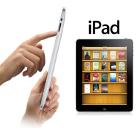Apple has long relied on Samsung Electronics to supply chips for its products. An internal examination of the new iPad 2 suggests the relationship between the companies remains intact, despite some predictions to the contrary.
UBM TechInsights, one of the firms that specialize in taking apart new devices to analyze their components, says its study of the Apple-designed A5 processor in the iPad 2 show that the Korean giant manufactured the chip–just as it did the central electronic brain for prior iPads and iPhones. “We can say that the A5 in our possession is definitely manufactured by Samsung,” said Allan Yogasingam, a UBM technical marketing manager.
That conclusion counters recent speculation that Apple might turn for the A5 to another build-to-order manufacturer, most likely Taiwan Semiconductor Manufacturing Co., or TSMC. Such predictions were based in part on fact that Samsung has emerged as one of Apple’s biggest competitors–first in smartphones and more recently with Samsung’s Galaxy tablet computer–and might have become reluctant to share details about the inner workings of its latest processor.
And the A5 is not Samsung’s only involvement in the iPad. The company has long been the world’s biggest maker of data-storage chips, providing flash-memory chips for many Apple devices. Apple previously decided to balance out its purchases by turning to the No. 2 flash-memory maker, Toshiba, as a second source for those chips.
The iPad 2 shows Samsung continues to share in this dual-source arrangement. Of the three iPad 2′s taken apart by UBM TechInsights, two used Samsung flash memory and one used Toshiba chips, Yogasingam said.
Other data-storage components called DRAM, for dynamic random access memory, come stacked inside the plastic package that contains the A5 processor. Two of the packages opened by UBM TechInsights contained Samsung DRAM and one contained DRAM from Elpida, Yogasingam said.
There were few other surprises in the iPad 2 analyses from UBM TechInsights and others, such as iFixit and ChipWorks. Broadcom and Qualcomm, as expected, each supplied communication chips for the new tablet.
UBM TechInsights is sticking with a $270 cost estimate it put on the components in a 32-gigabyte iPad 2 last week before getting its hands on one. That’s substantially more than the firm’s estimate for the first iPad but lower than Motorola’s rival Xoom.
The research firm now believes the dual-processor A5 chip cost Apple about $25, up from a range of $15 to $20 in its original estimate and about $10 more than comparable chips on the market, Yogasingam said. But that increase was countered by use of the same components for some functions as the Verizon iPhone 4 and the original iPad, which likely allows Apple to get lower prices because of its purchasing volume, he said.

No comments:
Post a Comment